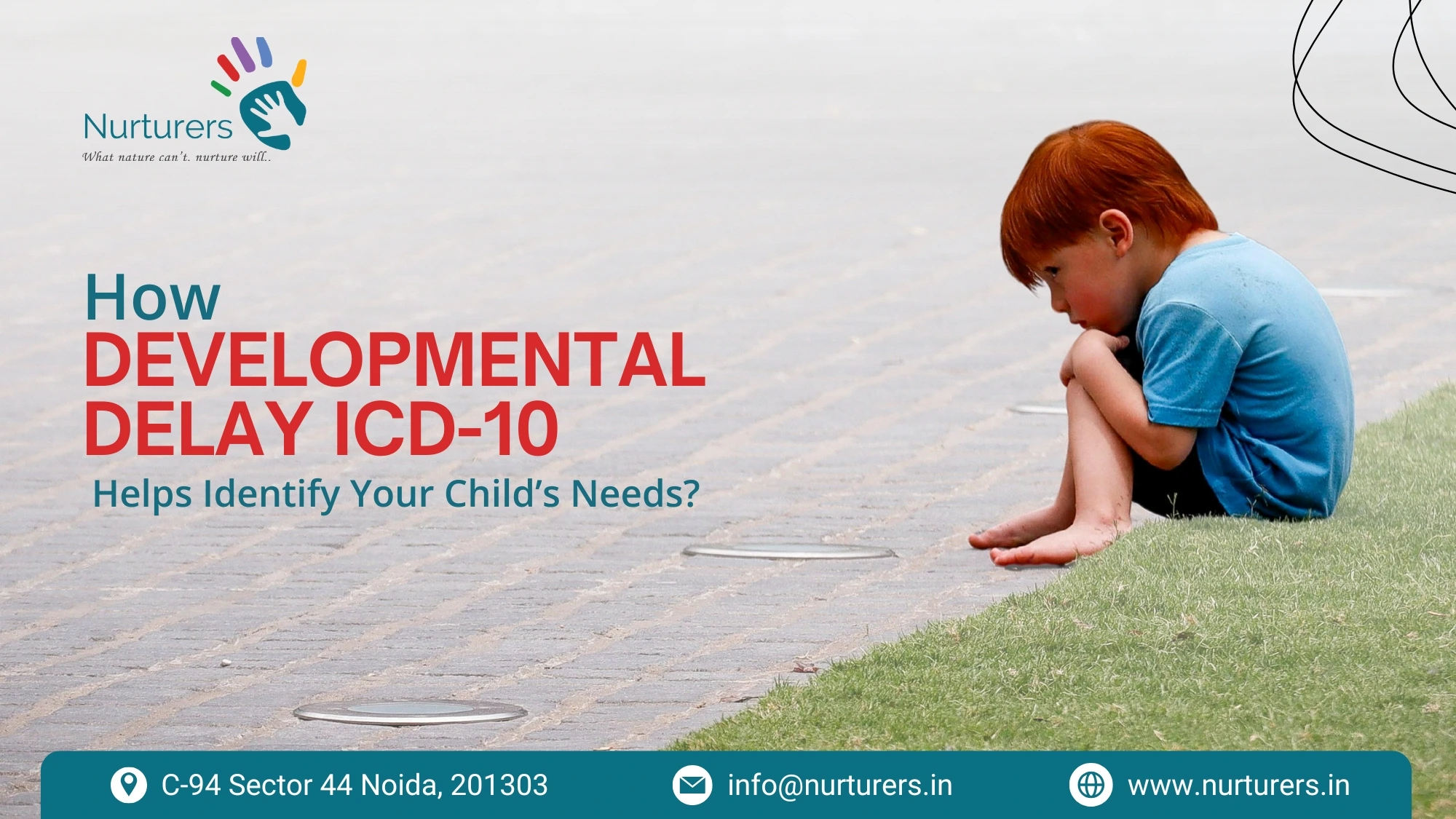Developmental delay occurs when a child does not achieve expected milestones in areas like speech, movement, learning, or social interaction. Because these delays can vary widely from one child to another, professionals rely on the Developmental Delay ICD-10 codes—a standardized international classification used to accurately identify the type and extent of a child’s delay. These codes help differentiate whether the child is experiencing speech and language delay, cognitive delay, fine or gross motor delay, social-emotional delay, or a global developmental delay that affects multiple areas.
By assigning the correct ICD-10 code, doctors, therapists, and special educators gain a clearer picture of the child’s developmental profile, which is essential for planning early interventions. This coding system also makes it easier for parents to access specialized therapies, school accommodations, and medical support because it provides formal documentation of the child’s needs. Overall, the ICD-10 approach ensures that no child’s challenges are overlooked, helping families receive timely guidance, personalized therapy plans, and long-term developmental support tailored to the child’s strengths and difficulties.
What Is Developmental Delay?
Developmental delay means a child is not achieving age-expected skills in one or more developmental domains. These milestones help track how a child grows, learns, and interacts. When a child falls behind consistently, it may indicate that certain areas of development need additional support.
- Motor development: sitting, crawling, walking, maintaining balance, and using hands for activities. Delays here may appear as slow physical movement or difficulty coordinating body parts.
- Language and communication: babbling, speaking, understanding words, and using gestures.
- Social-emotional development: making eye contact, responding to others, showing emotions, and engaging in play. Children with delays in this area may seem less interactive or have difficulty connecting with people around them.
- Cognitive development: problem-solving, learning new ideas, memory skills, and understanding cause–effect.
- Adaptive/self-help skills: feeding, dressing, toileting, and managing daily routines. These delays may show when a child takes more time to learn everyday independent tasks.
When these skills appear later than expected, the child may be experiencing developmental delays in children, which requires structured evaluation and early support.

Why ICD-10 Codes Are Used for Developmental Delay?
ICD-10 provides a standard and scientifically accepted system that helps professionals correctly identify and record developmental issues in children. These codes make the evaluation process more organised and ensure that every concern is clearly understood.
- Clearly document the type of delayed developmental milestones
- Identify whether the delay is mild, moderate, or severe
- Understand if the delay affects one domain or multiple domains
- Plan targeted therapy
- Coordinate care across therapists, pediatricians, and special educators
- Approve insurance, disability certificates, or government benefits where applicable
It ensures that your child’s developmental needs are recognized early and acted on quickly.
Common ICD-10 Codes for Developmental Delay
Although the exact code depends on the child’s evaluation, some ICD-10 codes are commonly used to identify different kinds of developmental delays. These codes help professionals record concerns accurately and decide what type of support the child needs.
1. R62.0 – Delayed Milestone in Childhood
Used when a specific developmental milestone (walking, talking, social interaction) is clearly delayed.
2. R62.50 / R62.5 – Unspecified Lack of Expected Development
Applied when a delay is present, but the specific developmental domain has not yet been identified.
3. F88 – Other Disorders of Psychological Development
Used when multiple developmental areas show significant delays, but the pattern does not match a single, specific condition.
4. F80–F89 Codes – Domain-Specific Developmental Disorders
These include:
- F80: Speech and language disorders
- F81: Learning disorders
- F82: Motor development disorder
- F84: Autism spectrum disorder
- F88–F89: Global or multiple developmental concerns
5. Z13.42 – Encounter for Developmental Screening
Used when a child is brought mainly for developmental assessment.
These codes guide clinicians toward appropriate therapy and help families understand the nature and seriousness of the delay.
Developmental Delay Causes – Why Do Delays Happen?
Developmental delays can occur due to many different reasons, and in many cases more than one factor contributes. Understanding the possible causes helps parents and professionals identify concerns early and provide timely support. Common causes include:
Biological Causes
Genetic disorders (such as Down syndrome or Fragile X syndrome) can affect how the brain and body develop. Brain development issues during pregnancy may slow a child’s growth in certain areas.
Medical and Physical Causes
Untreated jaundice may affect brain health in newborns. Seizure disorders can interfere with normal developmental progress. Chronic illnesses may limit a child’s energy, growth, or ability to explore.
Environmental Causes
Limited exposure to language or interaction can affect speech and social skills. Neglect or lack of stimulation may reduce opportunities for learning and exploration.
Types of Developmental Delay
Developmental delays appear in different areas of a child’s growth. Identifying the right type helps clinicians choose the correct Developmental Delay ICD-10 code and design an effective therapy plan.
1. Speech and Language Delay
Children with speech delay struggle with communication and expressive skills.
Common signs:
- Late babbling
- No meaningful words by 15–18 months
- Difficulty forming sentences
Explanation:
Speech and language delay affects how a child understands and uses words. Early therapy builds vocabulary, improves clarity, and supports overall social development.
2. Social–Emotional Delay
This delay affects a child’s ability to connect with others and express feelings.
Common signs:
- Limited eye contact
- Fewer gestures like pointing or waving
- Difficulty engaging with peers
Explanation:
Children may struggle with understanding emotions, forming relationships, or responding socially. Early support strengthens interaction and emotional regulation.
3. Cognitive Delay
Cognitive delay impacts how a child learns and processes information.
Common signs:
- Difficulty understanding basic concepts
- Slow learning pace
- Challenges with problem-solving
Explanation:
These delays relate to thinking skills, memory, and understanding. Structured learning, special education, and supportive teaching methods help build strong cognitive foundations.
4. Global Developmental Delay (GDD)
When a child experiences delays in several developmental areas at the same time, it is known as GDD.
Common signs:
- Speech delay + motor delay + social or cognitive delay
- Slow achievement of multiple milestones
Understanding the type helps clinicians apply the correct ICD-10 code and create a precise treatment plan.
How ICD-10 Helps Identify Your Child’s Needs – Step-by-Step
Step 1: Observation and Milestone Tracking
Your child’s behavior, skills, and daily interactions are carefully observed. Clinicians compare development with standard milestone charts to identify whether age expectations are being met.
Step 2: Assigning the Correct ICD-10 Code
Once delay patterns are identified, the appropriate ICD-10 code is recorded. This helps:
- Document the level and type of delay
- Create a formal medical history
- Enable consistent follow-up
- Support referrals to specialists
Step 3: Referral to Relevant Specialists
Depending on the code:
- Speech therapists address language delay
- Occupational therapists help with sensory and fine-motor delays
- Physiotherapists support gross motor development
- Special educators help with learning and behavior
- Developmental pediatricians manage overall evaluation
Step 4: Standardized Testing and Assessment
Tools like:
- Developmental Screening Tests
- Speech and Language Assessment
- Sensory Profile
- Bayley Scales of Development
- IQ/Cognitive testing
These provide measurable scores showing how far behind the child is.
Step 5: Progress Monitoring and Code Updates
If a child improves or the pattern becomes clearer, the ICD-10 code may be updated to reflect the new understanding or diagnosis. This ensures therapy always matches the child’s current needs.
Delayed Developmental Milestones – What Parents Should Watch For
Early detection depends a lot on parents, because they observe their child every day. When a child consistently misses expected milestones, it may indicate a developmental delay that needs timely evaluation.
- No social smile by 2 months
- No rolling by 6 months
- Not sitting independently by 9 months
- No babbling by 9–12 months
- No words by 15–18 months
- Not walking by 18 months
- Very limited eye contact
- Loss of previously learned skills
Whenever a milestone feels “late,” it is always better to get a screening.
How Nurturers Support Children With Developmental Delay?
At Nurturers Autism & Child Development Centre, we use ICD-10 coding as a foundation to build personalized therapy plans. Our approach includes:
- Detailed developmental screenings
- Speech therapy, occupational therapy, behavioral therapy
- Sensory integration and early learning programs
- Parental training and home plans
- Regular milestone reviews
- Collaborative care with pediatricians and schools
Each program is tailored so your child develops age-appropriate skills in the shortest possible time.
Conclusion
ICD-10 codes are more than medical labels. They help your child get accurate identification, timely support, and the right therapies. With early intervention, most developmental delays show significant improvement, especially when the right experts come together.
Nurturers ensure that every child receives structured assessment, evidence-based therapy, and compassionate guidance — helping them achieve their developmental potential.

